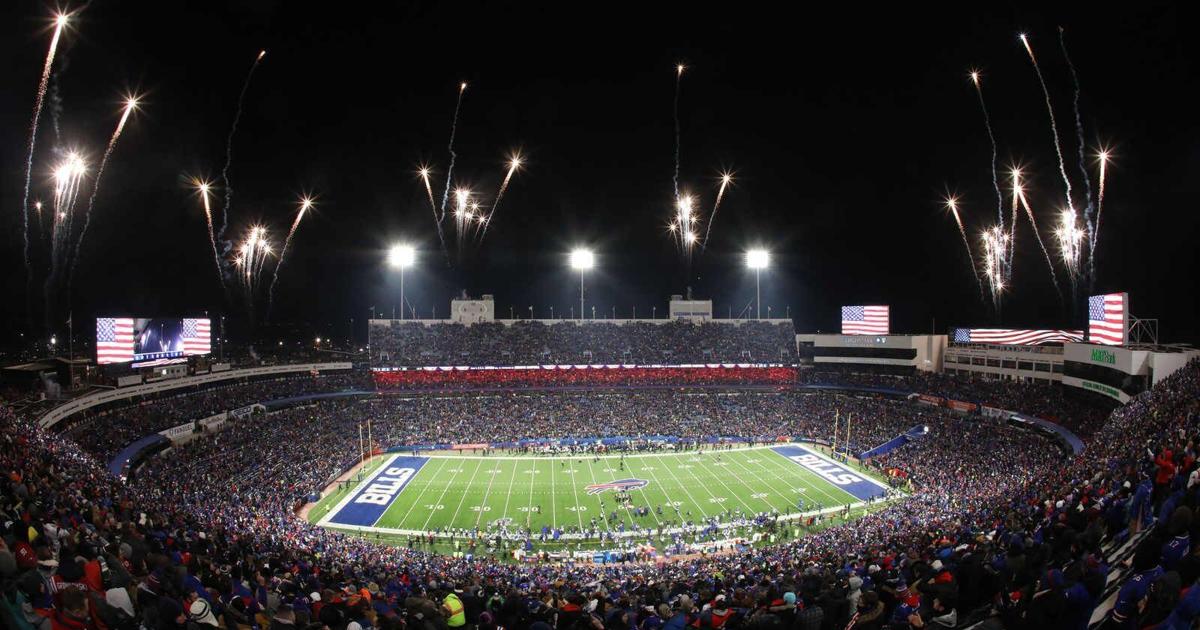BREAKING NEWS: The NFL’s “Bills Mafia” is Using Municipal Debt to Finance a New Stadium | Business-related because…

In a surprising turn of events, the Buffalo Bills’ passionate fan base, known as “Bills Mafia,” is now at the center of a significant financial strategy involving municipal debt to fund a new stadium. This decision highlights the intersection of sports, community support, and public financing, raising questions about the economic implications for the city of Buffalo and its residents.
#### The Push for a New Stadium
The Buffalo Bills, an iconic franchise in the NFL, have long been in discussions about replacing their aging home at Highmark Stadium. As the league evolves, teams are increasingly focusing on modern facilities that not only enhance the fan experience but also generate additional revenue through events and sponsorships. The Bills’ ownership has emphasized the necessity of a new stadium to remain competitive both on the field and financially.
#### Municipal Debt Financing
To finance the construction of a new stadium, local government officials have proposed leveraging municipal debt. This strategy involves issuing bonds to raise the capital required for the stadium project, which would be repaid through various revenue streams, such as taxes, ticket sales, and potentially even state funds. Proponents argue that this investment will stimulate local economic growth, create jobs, and generate significant tax revenue in the long run.
However, financing a stadium with municipal debt is not without its controversies. Critics argue that this approach places an unfair financial burden on taxpayers, particularly if projected revenues do not materialize. Additionally, the opportunity costs associated with using public funds for a stadium can be substantial, as those resources might otherwise support essential services like education, healthcare, and infrastructure improvements.
#### The Role of Bills Mafia
The fervent support from Bills Mafia plays a pivotal role in this discussion. Known for their loyalty and dedication, Bills fans have made headlines for their philanthropic efforts and community initiatives. Their enthusiasm is a significant driver for the franchise’s success, and the potential new stadium could enhance their game-day experience.
The Bills Mafia’s influence extends beyond the football field; their collective voice and activism could be instrumental in shaping public opinion around the financing strategy. If fans rally in support of municipal funding, it could help sway local leaders to back the proposal, framing it as an investment in the community rather than a mere luxury for wealthy team owners.
#### Economic Considerations
Economists remain divided on the merits of publicly funded stadiums. Supporters claim that new stadiums can revitalize neighborhoods, boost tourism, and create jobs during and after construction. However, studies often show that the promised economic benefits may not always come to fruition. Critics emphasize that many cities do not see a significant return on investment and that the costs may outweigh the benefits.
As the debate continues, local officials will need to carefully weigh the potential risks and rewards associated with financing a new stadium through municipal debt. Public hearings and community engagement will be crucial to ensuring that residents feel heard and considered in the decision-making process.
#### Conclusion
The potential use of municipal debt to finance a new stadium for the Buffalo Bills is a complex issue that encapsulates the relationship between sports, community, and public finance. As Bills Mafia rallies behind the franchise, their enthusiasm could play a crucial role in shaping the outcome of this project. However, the economic implications for the city of Buffalo and its taxpayers cannot be overlooked. This ongoing discussion serves as a reminder of the delicate balance between sports investments and community needs, underscoring the need for transparent and responsible financial planning.







